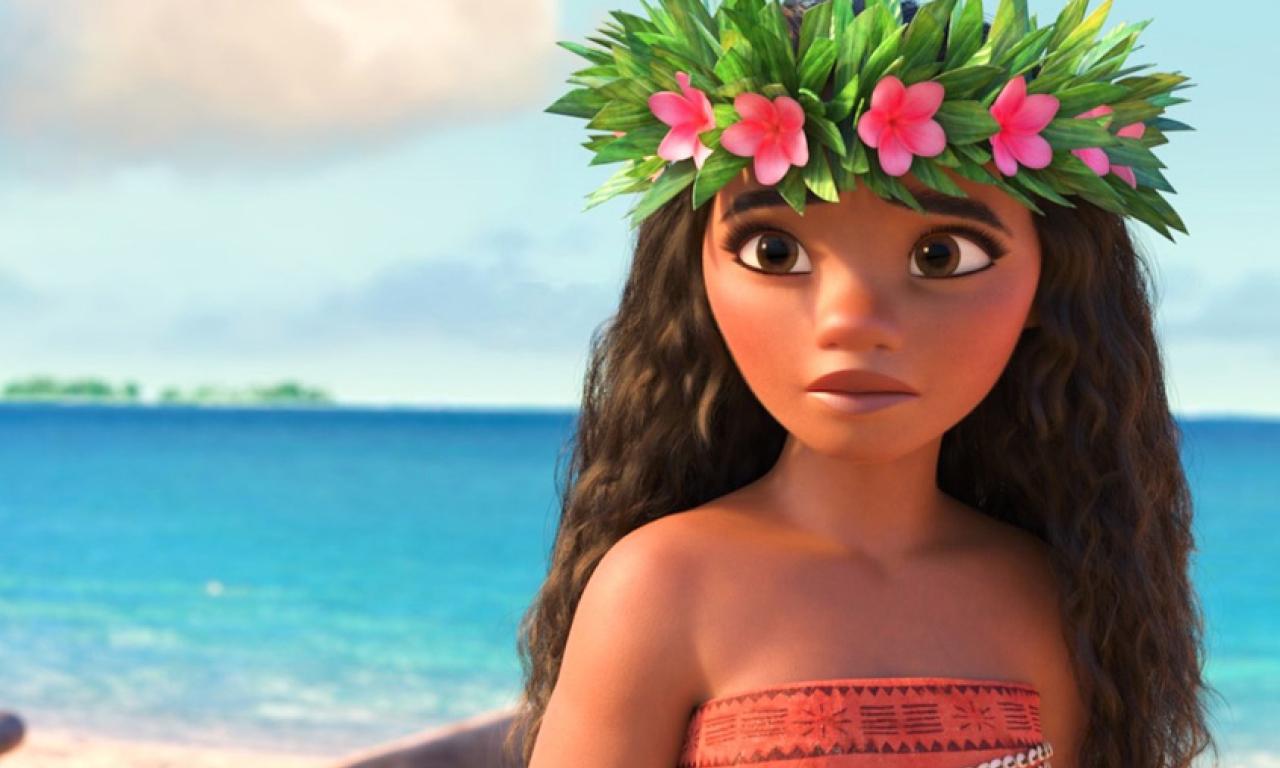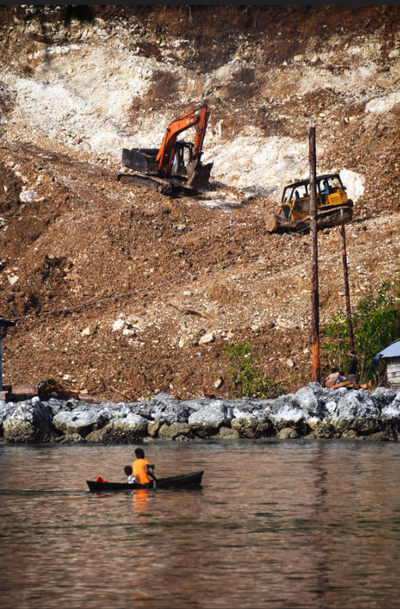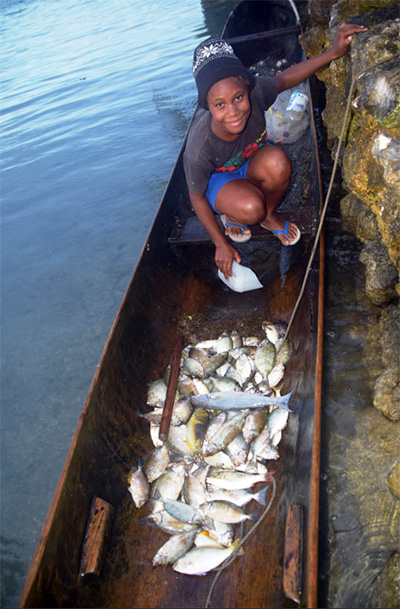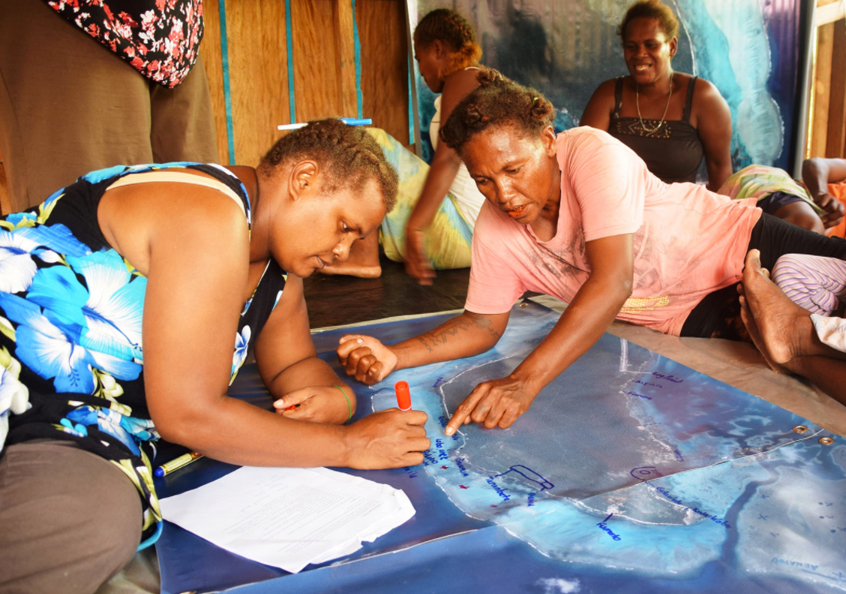
A modern-day fairytale, the Moana film is at the same time a compelling allegory for contemporary developments in Pacific Island fisheries.
Recommended publications
- Planning the use of fish for food security in the Pacific
- Livelihoods and fisheries governance in a contemporary Pacific Island setting
“Moana, make way, make way!
Moana, it's time you knew
The village of Motunui is all you need
The dancers are practicing; they dance to an ancient song
Who needs a new song? This old one's all we need“
Children all around the world are singing the songs from the recently-released Disney movie Moana. The film tells the story of Moana, the daughter of a chief of a small tropical island in the Pacific. When a mysterious darkness strikes the island, reducing fish stock in the lagoon, Moana sets sail to save her people from hunger and despair.
A modern-day fairytale, Moana is at the same time a compelling allegory for contemporary developments in Pacific Island fisheries.
Fish plays a critical role in the economies and cultures of the Pacific Islands, and is by far the most important source of animal protein. Most locally-consumed fish is caught by fishers using small boats in coastal waters.
However marine resources are declining rapidly in many areas due to a range of pressures. WorldFish scientists have warned that this poses a significant threat to food security in the near future, particularly for coastal communities that depend heavily on fish.
In Solomon Islands, for example, coastal fisheries are increasingly threatened by overexploitation and sedimentation, largely fueled by global trade networks. The exploitation of sea cucumber fisheries is a case in point: rising demand in China for dried sea cucumber (bêche-de-mer) has led to a collapse of this highly profitable fishery.
The logging industry is another example: uncontrolled timber harvesting by logging companies is leading to massive run-off that is burying coral reefs and smothering seagrass meadows.


In most cases, communities are ill-equipped to deal with these new, external developments. In the short term, they bring much-needed cash to poor, remote areas. In the long term, however, they erode the resource base on which people rely.
Increasingly, Pacific Island governments realize that they have an important role in the management of coastal resources. In 2015, the national governments of the 22 Pacific Island countries and territories endorsed a strategy to safeguard inshore fisheries. They called it the ‘New Song’.
The New Song reaffirms the importance of community-based fisheries management. After all, most reefs and lagoons in the region are owned by communities, which often know much more than the government about these fisheries, and are directly dependent on them.
But at the same time the New Song acknowledges that many developments, such as rising demand for sea cucumber and timber, are outside the influence of local people, and that communities need support in the management of their fisheries.
This political recognition of the value of coastal fisheries for food security and livelihoods, and of the need to support community-based fisheries management, is a major breakthrough.
For many years, WorldFish has been researching how to improve the productivity and resilience of small-scale fisheries in the Pacific region. As part of this work, WorldFish is now supporting governments in the Pacific to implement the New Song.
In the Solomon Islands, for example, we are building the capacity of provincial governments to better support communities in the management of their fisheries.

In the movie, Moana realizes that her community cannot solve the new mysterious threat by relying on their traditions. But her idea of fishing beyond the reef is dismissed by her father as reckless (in fact, WorldFish research has demonstrated that nearshore fish aggregating devices can increase the supply of fish). Moana therefore leaves the village in search of help.
In the real world, the ideas and voices of women, like Moana, are often also downplayed, overlooked and underrepresented in decisions on fisheries management. This has to change, if we are to respond to the challenges and threats of the 21st century. And nothing is perhaps as effective in challenging such prejudice, norms and behavior as a Hollywood blockbuster.
The movie Moana is a fantastic celebration of the spirit of adventure and discovery in the Pacific. Also in the Solomon Islands, young girls are now singing the songs of Moana and dreaming of helping their people to build a better future. It is in that spirit that WorldFish will work to improve coastal fisheries in the Pacific.
“My home, my people beside me
And when I think of tomorrow - there we are
I'll lead the way; I'll have my people to guide me
We'll build our future together - where we are
Cause every path leads you back to - where you are
You can find happiness right - where you are”

